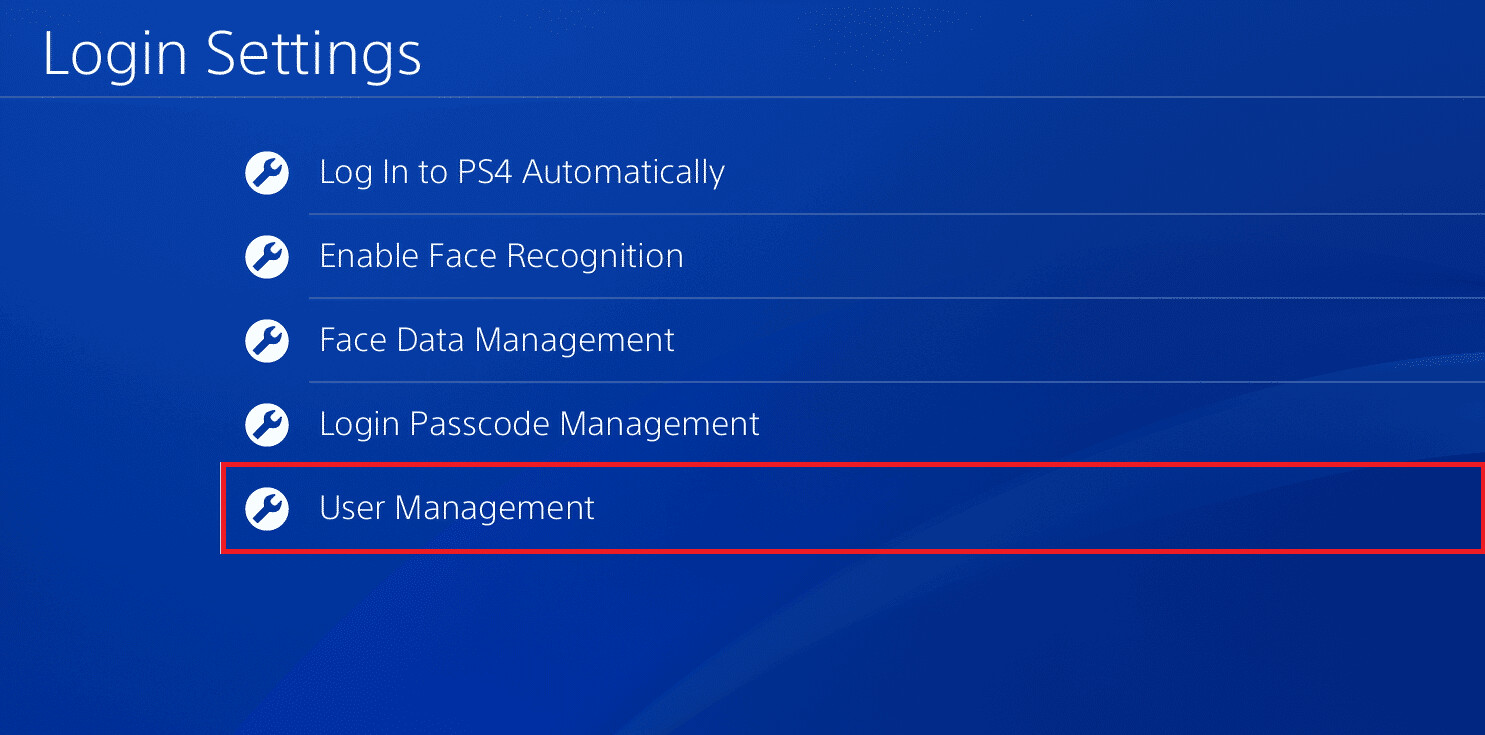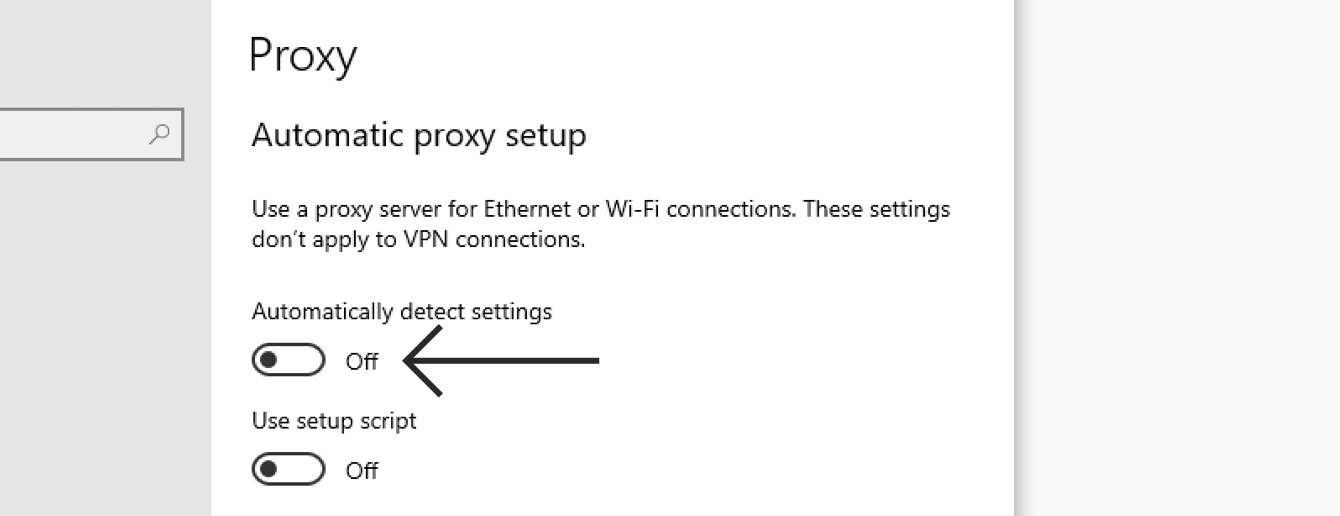Introduction
A proxy server is a server that acts as an intermediary between a client, such as a computer or a mobile device, and the internet. It facilitates the transmission of data from the client to the desired destination while also providing additional functionalities. Proxy servers are widely used for various purposes, ranging from improved security and privacy to accessing geographically restricted content.
In today’s digital age, where online activities have become an integral part of our lives, the need for proxy servers has grown significantly. Whether it’s for personal use or business applications, understanding the role and benefits of proxy servers can greatly enhance our internet experience. In this article, we will explore what a proxy server is, how it works, and the different types of proxy servers available.
By the end of this article, you will have a clear understanding of the various uses and advantages of proxy servers, enabling you to make informed decisions about incorporating them into your online activities or business operations.
What is a Proxy Server?
A proxy server is a computer or application that acts as a middleman between a client and the internet. It intercepts the requests sent by the client and forwards them to the appropriate destination. When the response is received from the destination, the proxy server sends it back to the client. Essentially, it serves as a gateway for internet traffic, providing an additional layer of functionality and control.
Proxy servers can be located anywhere around the world and serve as an intermediary between the client and the websites or services they are trying to access. The client connects to the proxy server, and the proxy server makes the request on behalf of the client, masking the client’s true identity and IP address.
One of the key functions of a proxy server is to cache web pages and files, allowing for faster retrieval when requested by subsequent users. This can significantly reduce bandwidth usage, improve load times, and enhance overall browsing efficiency. Additionally, proxy servers can also handle tasks such as authentication, SSL encryption, and content filtering.
Overall, a proxy server acts as a bridge between clients and the internet, providing enhanced security, privacy, and performance. It plays a vital role in various internet-related activities, such as web browsing, downloading files, accessing online services, and more.
How Does a Proxy Server Work?
A proxy server operates by intercepting the communication between a client and the internet. When a client sends a request to access a website or service, it first connects to the proxy server instead of directly connecting to the destination server. The proxy server then evaluates the request and forwards it on behalf of the client.
The process of how a proxy server works can be broken down into the following steps:
- Client connection: The client, such as a computer or mobile device, configures its settings to connect to the proxy server. This can be done manually or automatically through the network settings.
- Request interception: When the client initiates a request to access a website or service, the request is intercepted by the proxy server. The client’s original IP address and identity are masked, ensuring anonymity and security.
- Request evaluation: The proxy server evaluates the request, checking if it meets certain criteria or rules. This can include filtering out certain types of content, checking for malicious activity, or verifying permissions and authentication.
- Forwarding the request: If the request is deemed valid, the proxy server forwards it to the destination server. From the perspective of the destination server, it appears as if the request is coming from the proxy server and not the original client.
- Response retrieval: The destination server processes the request and sends a response back to the proxy server. The proxy server receives the response on behalf of the client and then forwards it back to the client.
By utilizing this process, proxy servers can add a layer of functionality, control, and security to internet communication. They can cache and store web pages, filter out harmful or unwanted content, optimize bandwidth usage, and provide identity protection for the client.
In summary, proxy servers intercept and evaluate client requests, forward them to the destination server, and retrieve responses on behalf of the client. They act as a gateway between the client and the internet, enabling enhanced security, privacy, and performance.
Types of Proxy Servers
Proxy servers come in different types, each with its own unique features and functionalities. Understanding the various types of proxy servers can help you choose the right one for your specific needs. Here are some of the most common types:
1. Forward Proxy
A forward proxy, also known as an HTTP proxy, is the most commonly used type of proxy server. It acts as an intermediary between a client and the internet, forwarding requests from the client to the destination server. Forward proxies are typically used to enhance privacy, access restricted content, and improve performance by caching web pages.
2. Reverse Proxy
A reverse proxy server is positioned between the internet and web servers. It handles incoming requests on behalf of multiple servers, acting as a single point of access for clients. Reverse proxies are often used to improve performance by distributing the incoming traffic across multiple servers, serving as a load balancer. They also provide additional security by hiding the identity of the actual servers handling the requests.
3. Transparent Proxy
A transparent proxy server intercepts internet connections without modifying them. From the client’s perspective, it appears as if they are connecting directly to the destination server. Transparent proxies are often used in corporate networks to enforce security policies, monitor internet usage, and filter content.
4. Anonymous Proxy
An anonymous proxy server anonymizes the client’s IP address and identity. It hides the original information, making it difficult for the destination server to identify the client. Anonymous proxies are commonly used for purposes such as bypassing regional restrictions, accessing blocked websites, and maintaining privacy online.
5. High Anonymity Proxy
A high anonymity proxy, also known as an elite proxy, provides the highest level of anonymity. It not only hides the client’s IP address but also doesn’t disclose that it is a proxy server. This makes it extremely difficult for the destination server to identify the client’s true origin, ensuring maximum privacy.
These are just a few examples of the types of proxy servers available. There are variations and combinations of these types, each serving different purposes and catering to specific needs. By understanding the different types, you can select the most suitable proxy server for your requirements.
Proxy Server Uses
Proxy servers have a wide range of uses and applications in both personal and business settings. Let’s explore some of the common ways in which proxy servers are utilized:
1. Improved Security and Privacy
One of the primary reasons people use proxy servers is to enhance their security and privacy online. By routing internet traffic through a proxy server, the client’s IP address and identity are masked, making it difficult for hackers and malicious entities to track and target them. Proxy servers can also encrypt data transmissions, adding an extra layer of protection when accessing sensitive information over public networks.
2. Accessing Geo-Blocked Content
Proxy servers can help bypass geographical restrictions imposed by certain websites or services. By connecting to a proxy server located in a different region, users can trick websites or streaming platforms into thinking they are accessing content from that specific location. This allows individuals to access geo-blocked content and enjoy services that may not be available in their country.
3. Anonymity and Identity Protection
Proxy servers, particularly anonymous and high anonymity proxies, preserve the user’s anonymity by hiding their IP address and original identity. This can be valuable for individuals or organizations that want to browse the internet without revealing their true location or personal information. Anonymity is particularly important in situations where individuals wish to avoid targeted advertising, surveillance, or censorship.
4. Bandwidth Optimization
Proxy servers can cache web pages, images, and files, storing them locally for faster access. By serving cached content to multiple clients, proxy servers can optimize bandwidth usage, reduce server load, and improve overall browsing speed. This is especially beneficial in environments with limited or congested internet connections.
5. Content Filtering and Censorship Bypass
Proxy servers can be used to implement content filtering policies in organizations or institutions. They act as a gateway through which internet traffic is filtered and restricted based on predefined rules. This can help block access to inappropriate or malicious websites, allowing for a safer and more controlled browsing experience. Proxy servers also enable users to bypass censorship and access blocked websites in regions with strict internet regulations.
These are just a few examples of the many ways proxy servers can be utilized. Whether it’s for enhanced security, bypassing restrictions, preserving anonymity, or optimizing bandwidth, proxy servers offer a multitude of benefits for individuals and businesses alike.
Improved Security and Privacy
Proxy servers provide an additional layer of security and privacy when browsing the internet. Here’s how they enhance these aspects:
Anonymity and IP Address Masking
When you connect to a website directly, your IP address is revealed, allowing websites to track your online activities. However, when using a proxy server, your requests are routed through the server, effectively masking your IP address. This hides your true location and identity, making it difficult for websites, advertisers, and even malicious entities to track and target you.
Data Encryption
Proxy servers can also offer encryption capabilities, securing your data transmissions. By encrypting the communication between your device and the proxy server, sensitive information such as usernames, passwords, and personal data are protected from being intercepted by hackers or third parties.
Firewall Protection
Many proxy servers act as a firewall, providing an additional layer of protection against malicious attacks. They can filter out suspicious or harmful traffic, blocking access to websites known for hosting malware, phishing schemes, or other cyber threats. This helps keep your devices and network safe from potential security breaches.
Bypassing Network Restrictions
In some cases, organizations or institutions may impose certain restrictions on their network, blocking access to specific websites or services. However, by using a proxy server, you can bypass these restrictions and access blocked content. Proxy servers allow you to connect to the internet through a different IP address, circumventing limitations and granting you access to restricted resources.
Secure Remote Access
Proxy servers can provide a secure way to access resources on a remote network. By configuring a proxy server on the remote network, users can establish a secure tunnel between their device and the network, encrypting all communication. This is especially useful for remote workers who need to access company files and resources from outside the office environment.
Overall, proxy servers greatly enhance security and privacy by hiding your IP address, encrypting data transmissions, offering firewall protection, bypassing network restrictions, and enabling secure remote access. By utilizing a proxy server, you can browse the internet with peace of mind and protect your sensitive information from various online threats.
Accessing Geo-Blocked Content
Geo-blocking is a practice used by websites and streaming platforms to restrict access to their content based on the user’s geographical location. However, proxy servers provide a solution to bypass these restrictions and access geo-blocked content. Here’s how:
Masking Your Location
When you connect to a proxy server located in a different region or country, your IP address is replaced with the IP address of the proxy server. This makes it appear as if you are accessing the internet from that specific location, fooling websites and services into believing you are within their allowed regions.
No More Content Restrictions
By using a proxy server, you can overcome content restrictions set by websites or streaming services. This enables you to access region-specific content, such as streaming services that are only available in certain countries. Whether it’s accessing your favorite TV shows, movies, or sports events that are unavailable in your location, a proxy server can grant you access to the desired content.
Enhanced Entertainment Options
Proxy servers open up a world of entertainment options by allowing you to access geo-restricted platforms. For example, if a streaming service offers different libraries or exclusive content in different countries, you can simply connect to a proxy server in the country of your choice to unlock those additional options. This expands your choices and enhances your entertainment experience.
Freedom to Travel and Access Content
Proxy servers are particularly useful for travelers who may face limitations in accessing content or websites from their home country while abroad. By connecting to a proxy server in their home country, they can bypass geo-blocking and access familiar content, ensuring they can enjoy their favorite shows, services, and websites no matter where they are in the world.
Testing and Development Purposes
Proxy servers also serve a vital role in testing and development for businesses. Developers can simulate browsing from different locations by using proxy servers, ensuring that applications and websites function properly for users around the world. This allows for robust testing and localization of content.
By utilizing proxy servers, you can overcome geo-blocking and unlock a world of content that was previously restricted. Whether it’s for entertainment, travel, or professional purposes, proxy servers provide you with the freedom to access the content you desire regardless of your location.
Anonymity and Identity Protection
Proxy servers play a crucial role in preserving anonymity and protecting personal identity when browsing the internet. Let’s take a closer look at how proxy servers achieve this:
IP Address Masking
When you connect to the internet through a proxy server, your real IP address is replaced with the IP address of the proxy server. This effectively conceals your true location and identity from websites and online services you interact with. By masking your IP address, proxy servers provide a valuable layer of anonymity, making it difficult for others to track and identify you.
Hiding Browsing Patterns
Proxy servers enable you to hide your browsing patterns and online activities. Since your connection originates from the proxy server, websites and advertisers cannot trace your actions back to your device. This helps protect your privacy and prevents third parties from gathering information about your browsing habits and interests.
Data Encryption
Using a proxy server with encryption capabilities adds an extra layer of protection for your personal data. Your communication between the device and the proxy server is encrypted, making it significantly more challenging for hackers and eavesdroppers to intercept and decipher your sensitive information. This is particularly important when using public Wi-Fi networks or when transmitting confidential data.
Identity Protection
Proxy servers serve as a barrier between your device and the websites or services you interact with. This separation helps protect your personal identity and sensitive information. The websites you visit only see the information provided by the proxy server, allowing you to maintain a certain level of confidentiality and shielding your device from potential security threats.
Bypassing Internet Censorship
Proxy servers can bypass internet censorship imposed by governments or organizations. In regions with strict online regulations, using a proxy server can help you access blocked websites and services without revealing your true identity. This provides a valuable tool for individuals seeking to exercise their freedom of information and expression.
By utilizing proxy servers, you can preserve your anonymity, protect your personal identity, and safeguard your online activities. Whether it’s for privacy concerns, protection against surveillance, or circumventing censorship, proxy servers offer the means to browse the internet with a greater sense of security and peace of mind.
Bandwidth Optimization
Proxy servers play a crucial role in optimizing bandwidth usage and improving overall network performance. Here’s how they achieve this:
Web Page and File Caching
Proxy servers can cache frequently accessed web pages, images, and files locally. When a client requests a cached resource, the proxy server serves it directly from its cache, eliminating the need to retrieve it from the internet. This caching mechanism significantly reduces bandwidth usage, as subsequent requests for the same resource can be fulfilled much faster.
Reduced Server Load
Proxy servers distribute the load among multiple clients by caching and serving frequently requested content. By reducing the number of direct requests to the destination server, proxy servers alleviate the overall server load. This can result in improved response times and better performance, especially during periods of high traffic or when dealing with resource-intensive websites or services.
Optimized File Compression
Proxy servers can compress files before transmitting them to the client’s device. By compressing files, such as images and videos, proxy servers can reduce the size of data packets being transferred, resulting in less bandwidth consumption. This optimization technique improves download speeds, especially in scenarios where internet connections have limited bandwidth.
Bandwidth Control and Throttling
Proxy servers provide administrators with the ability to control and manage bandwidth usage. Through traffic shaping and throttling techniques, proxy servers can prioritize certain types of traffic, limit bandwidth usage for specific users or applications, and ensure fair distribution of resources. This helps prevent network congestion, maintain optimal performance, and allocate bandwidth resources according to the organization’s needs.
Content Delivery Optimization
Proxy servers located strategically in different regions can help optimize content delivery. By caching content closer to the end-users, proxy servers reduce latency and improve load times. This is particularly beneficial for businesses that have a wide geographical user base, as it ensures faster and more efficient content delivery regardless of the user’s location.
Proxy servers play an essential role in bandwidth optimization by caching web pages and files, reducing server load, compressing data, providing bandwidth control, and optimizing content delivery. By implementing these techniques, organizations can enhance overall network performance, improve user experience, and make efficient use of available bandwidth resources.
Content Filtering and Censorship Bypass
Proxy servers offer valuable functionalities when it comes to content filtering and bypassing internet censorship. Here’s a closer look at how they assist in these areas:
Content Filtering
Proxy servers can implement content filtering policies to regulate internet usage within organizations or institutions. Administrators can set up rules to filter out specific types of content, such as adult material, gambling websites, or social media platforms. By channeling internet traffic through the proxy server, organizations can enforce their acceptable use policies and protect users from accessing inappropriate or harmful content.
Malware and Virus Protection
Proxy servers can also act as a gatekeeper against malware and viruses. By scanning incoming web traffic, proxies can block access to websites known for distributing malicious content or hosting malware. This helps prevent users from inadvertently downloading or accessing harmful files, thus enhancing the overall security posture of the network.
Parental Control
Proxy servers are often employed as a form of parental control for households with children. Parents can configure the proxy server to restrict access to certain websites or content categories that are deemed inappropriate or unsuitable for their children. By filtering out age-restricted content or blocking specific websites, proxy servers give parents peace of mind and ensure a safer online environment for their children.
Censorship Bypass
In regions where internet censorship is prevalent, proxy servers provide a means to bypass those restrictions and access blocked websites or services. By connecting to a proxy server located outside the censored region, users can mask their location and gain access to blocked content. This is particularly useful for individuals seeking uncensored information, accessing social media platforms, or staying connected to news sources that may be restricted by their government or ISP.
Preserving Freedom of Information
Proxy servers enable users to preserve their freedom of information and exercise their right to access uncensored content. They provide a critical tool for journalists, activists, and individuals who strive to circumvent censorship and share information without fear of repercussion. Proxy servers play a significant role in providing a platform for open communication and ensuring access to diverse sources of information.
By employing content filtering mechanisms and bypassing internet censorship, proxy servers enable organizations to regulate internet usage, protect against malware, and enforce acceptable use policies. Additionally, they empower individuals to bypass restrictions, preserve freedom of information, and access uncensored content, thereby fostering an open and inclusive digital environment.
Conclusion
Proxy servers are powerful tools that enhance security, privacy, and internet accessibility. They serve as intermediaries between clients and the internet, providing a range of functionalities and benefits. From improving security and privacy to accessing geo-blocked content, proxy servers play a vital role in today’s digital landscape.
We explored what a proxy server is and how it works, understanding that it acts as a gateway for internet traffic, intercepting and forwarding requests on behalf of clients. We also discussed the various types of proxy servers, including forward proxies, reverse proxies, transparent proxies, anonymous proxies, and high anonymity proxies. Each type has unique features and applications, catering to different needs.
Proxy servers offer numerous advantages. They enhance security and privacy by masking IP addresses, encrypting data transmissions, and acting as firewalls. They allow users to access geo-blocked content, giving them the ability to enjoy services from different regions. Proxy servers also provide anonymity and protect personal identity, which is crucial in an age where online privacy is a growing concern.
Bandwidth optimization is another benefit of proxy servers, achieved through web page and file caching, reduced server load, optimized file compression, and bandwidth control. These optimization techniques improve performance and efficiency, delivering faster load times and a better browsing experience.
Furthermore, proxy servers enable content filtering and censorship bypass. They help organizations filter out inappropriate content, protect against malware, and enforce acceptable use policies. They also empower individuals to bypass internet censorship, access blocked websites, and preserve freedom of information.
In conclusion, proxy servers are versatile tools that provide a range of benefits in terms of security, privacy, accessibility, and network optimization. Whether you need to enhance your online security, bypass restrictions, or optimize bandwidth usage, proxy servers are indispensable assets that can greatly enhance your internet experience.

























